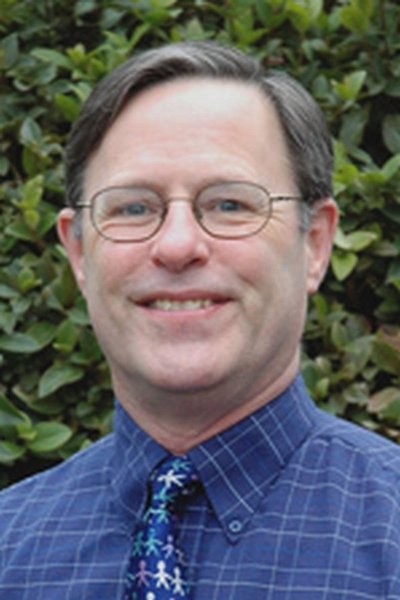January 29, 2009
Daniell named Rohm & Haas professor of public health sciences
Dr. William Daniell, associate professor in the Department of Environmental and Occupational Health Sciences, has been named the Rohm & Haas professor of public health sciences, effective Jan. 1.
Sponsored by the Rohm & Haas Company of Philadelphia, the endowed professorship “gives an investigator five years and generous financial resources to add to our knowledge of the health consequences of exposure to chemicals,” said Dr. Patricia Wahl, dean of the School of Public Health.
Professor Daniell’s “proposal directly addresses the purpose of the Rohm & Haas endowment,” said Wahl, “‘to bring the full power of the public health sciences into research, teaching, and policy analysis on the health consequences of exposures to chemicals and the most effective ways to characterize, communicate, and control such risks,'” citing language from the original agreement made between the company and the UW in 1987.
“Despite the current groundswell of interest in “green” living, we are exposed to chemicals virtually everywhere, and we’ll be dealing with the consequences of past exposures for decades to come,” said Wahl. “Research conducted under the auspices of the Rohm & Haas professorship will help us find ways to lower the risks and reduce the consequences of these exposures. It will also allow us to make use of research conducted elsewhere in the school, such as genetic findings that particular individuals may be more susceptible to injury from exposure to chemicals.”
As the Rohm & Haas professor of public health sciences, Daniell will investigate environmental and occupational issues of concern to public health in Southeast Asia, beginning with an epidemiological study to test pesticide exposure in Cambodia.
Two-thirds of the pesticides supplied to farmers in Cambodia are considered by the World Health Organization (WHO) as “extremely” or “moderately” hazardous, explained Daniell, who spent three months in the country last year. Daniell has also spent considerable time working with partners in Southeast Asia as he co-leads the Collaborative Center for Healthy Work and Environment, which supports occupational and environmental health training for scientists and professionals.
In Cambodia, as in many developing countries, farmers who use pesticides don’t necessarily have the information sources, education, protective equipment, technology or training to use them properly. Yet, “in a tropical climate with lots of insects, pesticide-use is inevitable,” said Daniell, whose research on pesticide exposure in Cambodia was awarded UW Royalty Research Funding.
Results of the epidemiological study on pesticide exposure may have important policy implications in Cambodia, said Daniell, given that the National Institute of Public Health (NIPH) in the Cambodian Ministry of Health recently mandated that environmental health should be added to its scope of research and that pesticide exposure is recognized by top officials as a public health concern.
“It’s a ripe opportunity to look at the epidemiology and the science but also the policy implications,” said Daniell.
He hopes that new partnerships and collaborative research in Southeast Asia will enhance regional capacity for environmental and occupational health research and policy formulation. Daniell will partner with NIPH researchers as well as the deputy director of the Ministry of Agriculture, Forestry, and Fisheries, who manages the National Integrated Pest Management Program and also heads the Department of Agricultural Legislation.
Daniell will ” build on the collaborative relationships he has already established in the region, which will, in turn, provide additional research opportunities for our faculty and students,” said Wahl. In addition, Daniell plans to develop and teach a new global environmental course in the next year.
Those entering the field of global health, said Daniell, should understand the important role environmental health plays in the overall health of people who live in developing countries.

